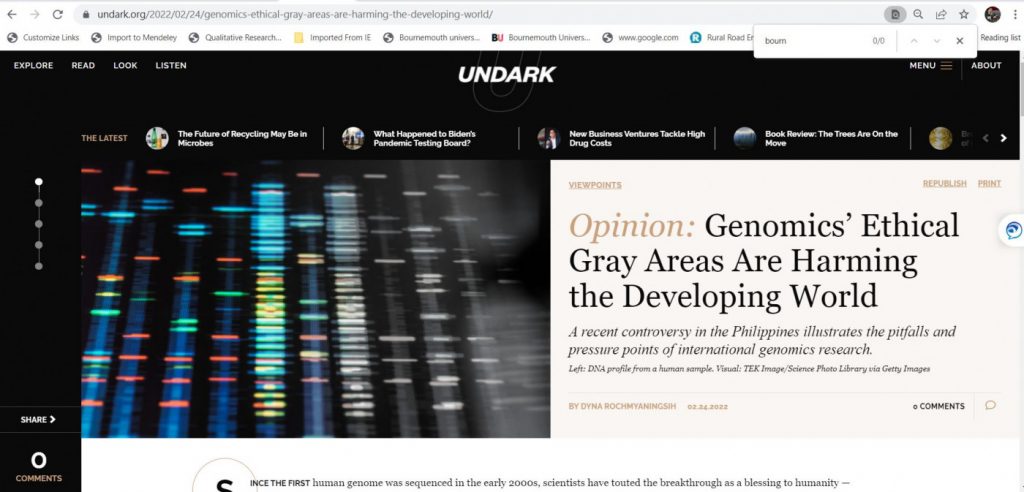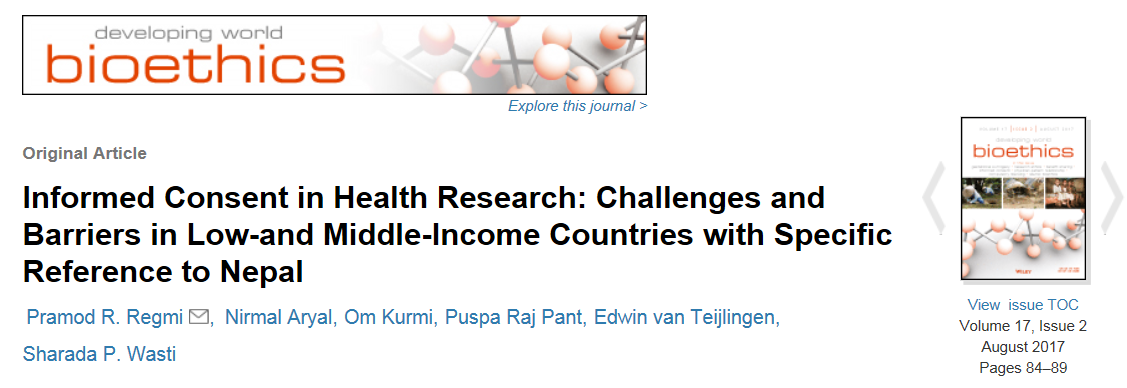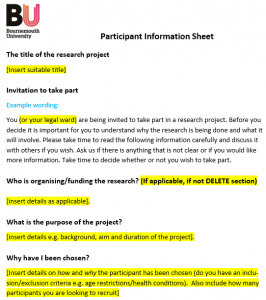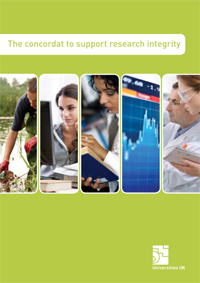Author: Suzy Wignall, Clinical Governance Adviser

Clinical Research
This week, we start our focus by looking at research ethics within Health and Clinical Research.
Research conducted within a healthcare setting in most cases will require additional approval to BU ethics. Ensuring that you have the correct approvals and oversight for your study is vital in assuring your participants that you are conducting the study in line with regulations and standards.
Under the UK Policy Framework for Health and Social Care Research, when a student or a member of staff is undertaking their own research within the NHS, then the organisation at which they study or work, should ideally take on the role of the research Sponsor. The Sponsor is defined as an individual, company, institution, organisation or group of organisations that takes on responsibility for initiation, management and financing (or arranging the financing) of the research.
Under new guidance, undergraduate students are no longer permitted to make an application to conduct research in the NHS. In certain cases, Master’s students are also not permitted, but should check their eligibility via the Health Research Authority’s student research toolkit.
Approvals
Research involving the NHS or social care, including patients, carers, human tissue, or data may require ethics approval from an NHS Research Ethics Committee (REC) or Social Care REC. Application for NHS REC is via the Integrated Research Application System (IRAS) and is coordinated by the Health Research Authority (HRA), so you only need to submit one application.
If you are unsure as to whether your research requires NHS REC approval, the HRA have provided a useful decision tool which determines whether NHS REC approval is required.
If NHS REC is not required, you may need other approvals such as HRA and HCRW Approval (Health and Care Research Wales) – for example if you are using NHS facilities, accessing anonymous patient data, or have NHS staff as participants. You may also in some cases need CAG Approval (access to identifiable data without patient consent).
What the University cannot approve
The storage of human tissue or other relevant materials for research, may require a licence from the Human Tissue Authority, which BU does not currently hold. If you obtain NHS REC approval, this will allow you to collect and store relevant materials for the duration of the project, and for up to one year after the declaration of the end of the research, for the purposes of analysis and verification of research data.
Research where the research participants are adults (aged 16 and over) and are unable to make decisions for themselves i.e. they lack capacity[1]. An ‘Appropriate Body’ to review this type of Research are limited to flagged RECs (in England and Wales) and the Social Care REC.
The University’s research ethics panels are not recognised as Appropriate Bodies under the Act.
Who to contact for help and further information?
Your first point of contact with any queries should be –
Much of the health research at Bournemouth University involves collaborating with the NHS and therefore requires Trust approval.
The following documents have been compiled by Bournemouth University Clinical Research Unit (BUCRU) and Research Development & Support (RDS):
In contacting potential NHS sites, a full list of appropriate contacts can be found on the Research & Development Forum website. It is always worth contacting the Trust early in the process.
Useful documents and links
The clinical governance section on the Research Governance & Integrity website has a wealth of information and links to websites and templates that can be used to make the process easier and less tasking,
A good place to start is deciding whether your study is research. Sometimes what is deemed research at BU, is not classed as such within the NHS. The above tool can help decide for you, as well as the Defining Research table. If your study is not deemed research, then you can proceed with the university ethics route.
If you do need to apply through IRAS, then the Clinical Researcher Checklist (PDF and word formats) can be used to keep track of the tasks required throughout the process.
Further training
External
Good Clinical Practice (GCP) is the international ethical, scientific and practical standard to which all clinical research is conducted. By undertaking GCP, you’re able to demonstrate the rights, safety and well-being of your research participants are protected, and that the data collected are reliable.
GCP training should be refreshed every 2 years in line with our training policy, which you can read here.
Please note that due to current advice as a result of COVID-19, courses are being provided online via Zoom. If you are interested in booking onto one of these courses, then please email Suzy Wignall who can put you in touch with the relevant contact.
You can undertake the training online by registering for an account here. On this website you can find full GCP e-learning, GCP refresher e-learning and also training surrounding areas such as informed consent in adults lacking capacity.
Internal
As part of the RKEDF Academics and Researchers can book onto the following sessions, either as a one-to-one meeting or a bespoke team session:
If you are a Postgraduate Research Student, there is also a Clinical Governance workshop as part of the Researcher Development Programme.
[1] The Mental Capacity Act 2005 (MCA)


 All research undertaken by BU staff and students is subject to appropriate ethical reflection, leading to a formal ethics review as appropriate.
All research undertaken by BU staff and students is subject to appropriate ethical reflection, leading to a formal ethics review as appropriate.

 Today’s spotlight is on the Researchers’ Responsibilities
Today’s spotlight is on the Researchers’ Responsibilities










 ESRC Festival of Social Science 2024 Open Call – Deadline for Applications Thursday 16 May
ESRC Festival of Social Science 2024 Open Call – Deadline for Applications Thursday 16 May We can help promote your public engagement event or activity
We can help promote your public engagement event or activity Horizon Europe News – December 2023
Horizon Europe News – December 2023